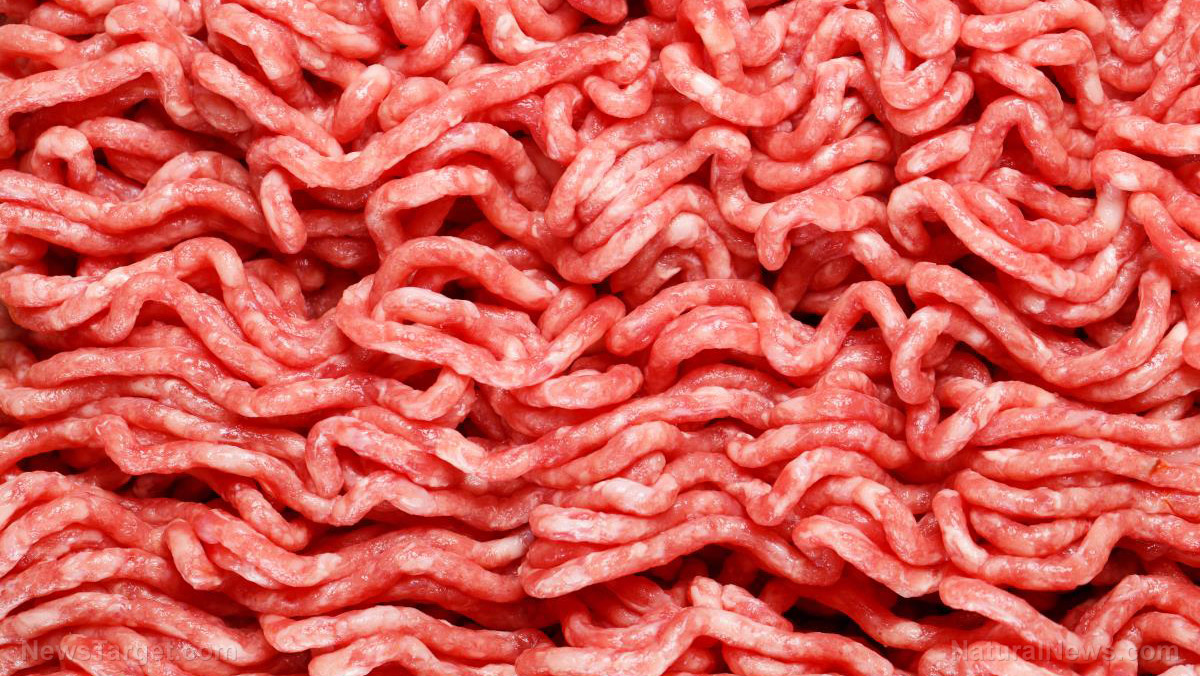BOMBSHELL: USDA turns a blind eye to meat supply contaminated with banned pharmaceutical drugs
11/20/2018 / By Lance D Johnson

Sanderson Farms, the third largest poultry producer in the nation, advertises that their chicken is “natural” and “antibiotic-free.” Like many large meat producers, Sanderson Farms gets away with these false claims without receiving any enforceable scientific scrutiny from meat inspectors working for the United States Department of Agriculture (USDA). Now, independent food safety organizations are challenging these “natural” and “antibiotic-free” claims in court.
According to a lawsuit, a team of independent scientists from the Consumers Union have analyzed USDA tests conducted on thousands of random meat samples from poultry, pork, and beef farms across the country. The findings, published by Consumer Reports, are shocking. Out of nearly 6,000 samples of meat, 2.6 percent contained chloramphenicol, an antibiotic that causes anemia in humans. For every 10,000 people exposed to chloramphenicol, one will suffer a life threatening condition called aplastic anemia. The levels of chloramphenicol exceeded safety limits set by the Consumer Union’s team of scientists.
Another drug detected is ketamine. This veterinary anesthetic is used illegally in livestock and elicits hallucinogenic effects. It’s also an illegal party drug, but families everywhere are unknowingly getting small doses at the dinner table. Finally, 1.6 percent of the samples included phenylbutazone, an anti-inflammatory drug that is too risky at any level for human health. Phenylbutazone is a known carcinogen that also causes aplastic anemia. Low level dietary consumption of these drugs raises one’s risk of cancer, causes antibiotic resistance, weakened immunity, and genetic harm to developing fetuses.
Mother Nature's micronutrient secret: Organic Broccoli Sprout Capsules now available, delivering 280mg of high-density nutrition, including the extraordinary "sulforaphane" and "glucosinolate" nutrients found only in cruciferous healing foods. Every lot laboratory tested. See availability here.
USDA contests its own safety data
Because the USDA permits drug residue in meat products at levels greater than what independent scientists consider unsafe, the USDA refuses to take this issue seriously. Even though these drugs are banned for prescription use and restricted in meat products, the USDA turns a blind eye to the fact that a percentage of meat products are contaminated with the drugs.
When Consumer’s Union followed up with government officials, doctors and industry groups, they were stonewalled. It turns out that drug residues in meat products are the dirty secret of the meat industry, but it’s something that no one, not even the USDA cares about. In fact, chief scientist for the USDA, Emilio Esteban, Ph.D., contests the independent analysis conducted by the Consumer’s Union. Even though the data was obtained from the USDA itself through a Freedom of Information Act request, Esteban says the analysis is “unconfirmed” and should be “discounted.”
What the USDA should be doing
Industry experts believe that the meat gets contaminated after the livestock drink water that includes drug runoff. Still, the USDA’s Food Safety and Inspection Service (FSIS) refuses to pressure meat facilities to ensure that livestock are drinking and eating from drug-free sources. Industry experts report that the banned drugs are likely still used to accelerate the growth of livestock. Many of the legal drugs that are currently used to accelerate the growth of livestock may be mislabeled or counterfeit. The USDA should be inspecting for the use of illegal and/or counterfeit drugs in livestock.
Not only should the USDA find out why these drugs are present, but they should also be auditing facilities that are consistently producing drugged up meat. Furthermore, the USDA should be contesting these claims of “natural” and “antibiotic-free.” Instead of minimizing the actual existence of their own findings, the USDA should be studying the health effects these drugs are having on the human population right now. Until then, certified organic meats might be the best drug-free option – or even better, a vegan or vegetarian lifestyle.
For more on food safety, check out Food.News.
Sources include:
Tagged Under: anemia, antibiotic resistance, banned pharmaceuticals, Consumer's Union, dirty meat, false advertising, food safety, food safety inspections, food supply, grocery, livestock health, meat products, natural claims, tainted meat, USDA, USDA watch




















